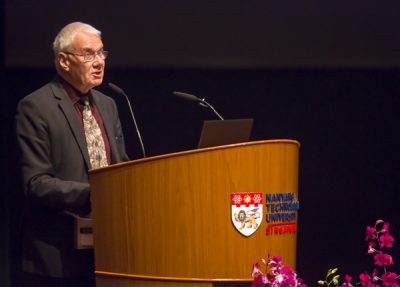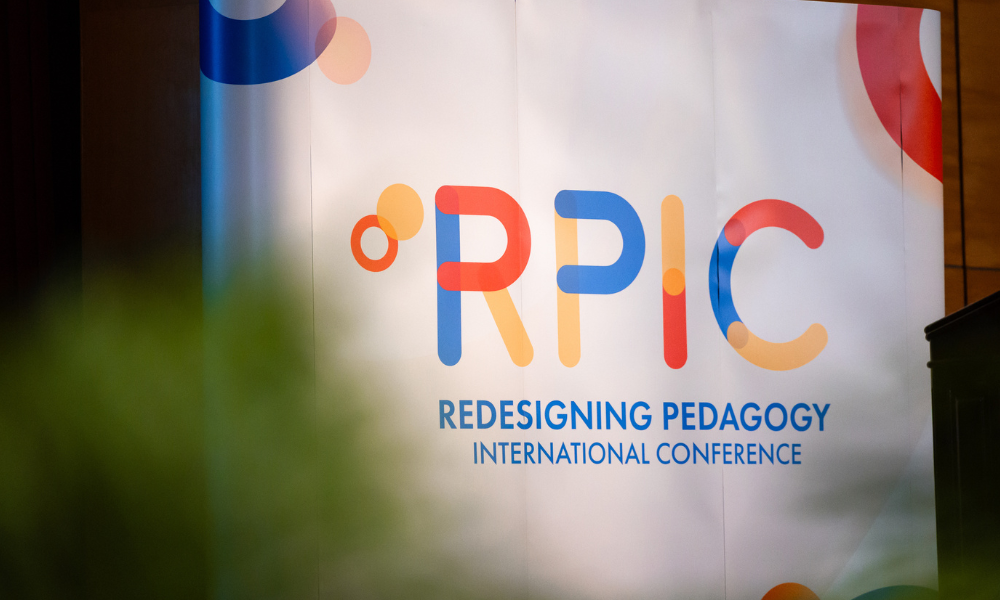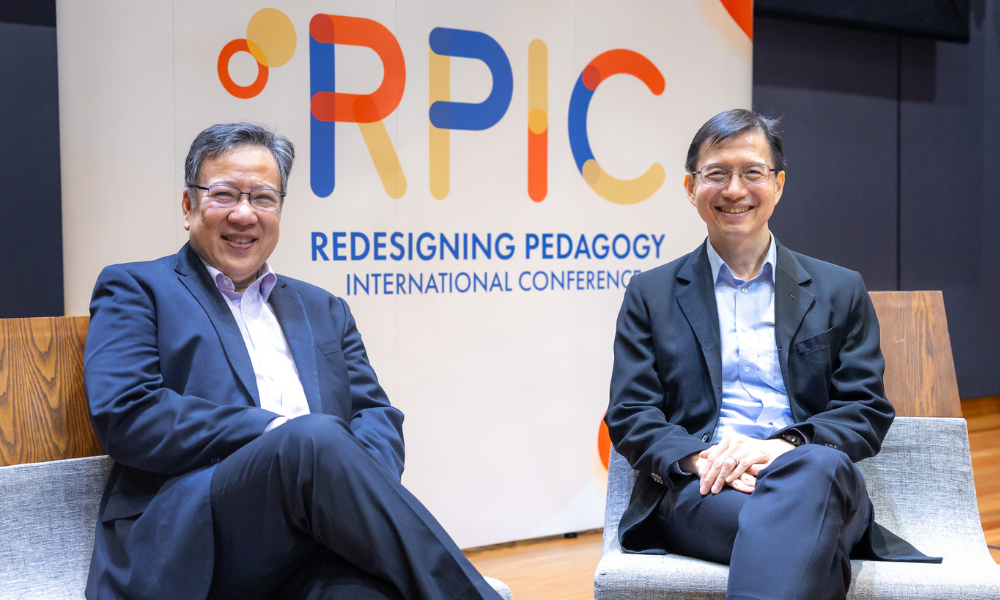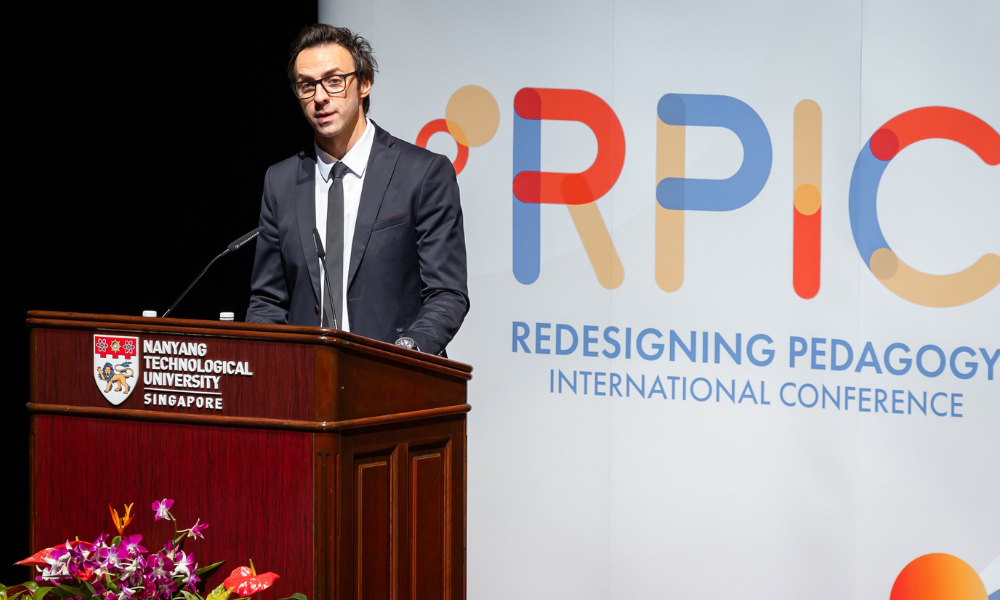Developing Moral Character and Virtue
If virtues or good qualities of character can be learned, Professor David Carr believes that they can also be taught. While drawing a distinction between education and schooling, Professor Carr also emphasizes the need for teachers to acquire good moral values so that they can be good moral role models to their students. This article is based on his keynote address at the Redesigning Pedagogy International Conference 2017.

Professor David Carr speaking at the Redesigning Pedagogy International Conference 2017 on distinguishing between education and schooling, as well as the importance of teachers acquiring good moral values.
Virtues Can be Learned and Taught
I am currently a research professor at The Jubilee Centre for Character and Virtues at the University of Birmingham in the UK. The work of the Jubilee Centre can be captured in terms of its goal to promote qualities of virtue and moral character in education and public life in Britain and more widely.
Virtue ethics is a fairly recent development in ethical theory, which however goes back to the ancient Greek philosophers – specifically to the philosophy of Aristotle. Their idea of virtue — in Greek, arête meaning excellence – is that of the qualities required for a flourishing human life (see box story below). Virtues are good qualities of character.
Aristotle, in particular, regarded virtues and vices as not innate but acquired. While many qualities of personality (such as charm or wit) may be innate, qualities of character (such as self-control or honesty) are acquired and our assessments of them are inherently moral, normative and evaluative.
It is also generally assumed in character attributions that people can do something about themselves: that they can improve and make themselves morally better. This also presupposes that if virtues or morally good qualities of character and quality can be learned, then they can also be taught.
The Difference between Education and Schooling
An important distinction worth making here is the difference between education and schooling.
In fact, one can become a well-educated person without having had any schooling at all. We have examples of people who have become renowned scholars without the benefits of schooling. But the same is true vice versa: one may go to school without becoming educated – and perhaps many people do.
I am not here condemning schooling. Schooling plays an important social role. It is difficult to see how a modern society and economy could survive without it. Schooling, however, has many purposes besides education; it is much concerned, for example, with training workers for a successfully functioning economy.
What we should be wary of is that preparing people for ‘life’ or careers is the same as education. While it is an important role for schools to train the young in the skills required for life or ‘breadwinning’, the knowledge required for full educational development is not reducible to that needed to make Singapore or Britain more effective global economies. In particular, the knowledge, understanding and sensibilities required for a life of moral virtue is not so reducible.
Stories to Cultivate Character and Virtues
So, where may we turn for knowledge or insight into virtuous rather than vicious human life and conduct: what may help us to understand what it is to live (morally) well rather than badly?
Unlike Plato, Aristotle takes the view that the stories, narratives and broader literature of human culture are a rich source of insight into human moral character and virtue. This point has been developed in modern times by such philosophers (and novelists) as Iris Murdoch and Alasdair MacIntyre.
In this light, the Jubilee Centre for Character and Virtues of the University of Birmingham has recently developed a highly successful school programme entitled the “Knightly virtues” project.
This project is precisely about the use of significant cultural narratives and literature in schools to help children acquire virtue literacy for a clearer understanding of the implications for good and ill of better and worse human character.
In this project, stories of (mainly) medieval English knights were used to explore certain moral ideals of chivalry, honesty and service, since the young children (around the age of 10- or 11-year-old) targeted in the project love the old stories about knights.
Many of these stories exemplify such virtues as humility, courage and justice and can be used to help children learn about these traits of character. But, while knights were all male characters, other stories were used to explore the good character and virtues of exemplary women such as Shakespeare’s Portia in his play The Merchant of Venice.
This project was implemented in many thousands of British schools and was highly popular with pupils, teachers and parents. The project developed workbooks and elaborate programmes of activities designed to help children acquire deeper knowledge of human character and virtues. A book about this project, authored by David Carr and Tom Harrison and entitled Educating Character through Stories was published by Imprint Academic in 2015
The Significance of Character Development for Teachers
If character development is important for children and young people, then there is a strong case for promoting such qualities and virtues in the education and training of the teachers who may be expected to exemplify such qualities to those they teach.
In this regard, it may be a problem that that we have lately come to construe teacher education as a matter of acquisition of a set of technical skills of lesson presentation, classroom management and so on. The focus has been all too often on these skills rather than the “soft” skills of interpersonal and moral association and engagement.
However, good teaching, is clearly more than technical skill and good teachers need to be people capable of generating an appropriate moral climate in the classroom that is conducive to mutual respect between teacher and pupils in the classroom.
Still, good teachers need not only moral character and virtues, since they also generate interest and enthusiasm in what they teach. Indeed, to generate enthusiasm and curiosity, teachers need to exemplify these qualities by being curious and enthusiastic themselves. In short, they also need what Aristotle called the “epistemic virtues”.
At all events, we should appreciate that teaching is a complex and complicated role that requires a very wide range of personal characteristics and character traits which cannot be reduced to a simple set of competencies or skills. However, what I have been mainly trying to do today is to emphasize the central importance of the moral dimensions of good teaching.
“We should appreciate that teaching is a complex and complicated role that requires a very wide range of personal characteristics and character traits which cannot be reduced to a simple set of competencies or skills.”
– Prof David Carr on the complexity of the role of an educator today






